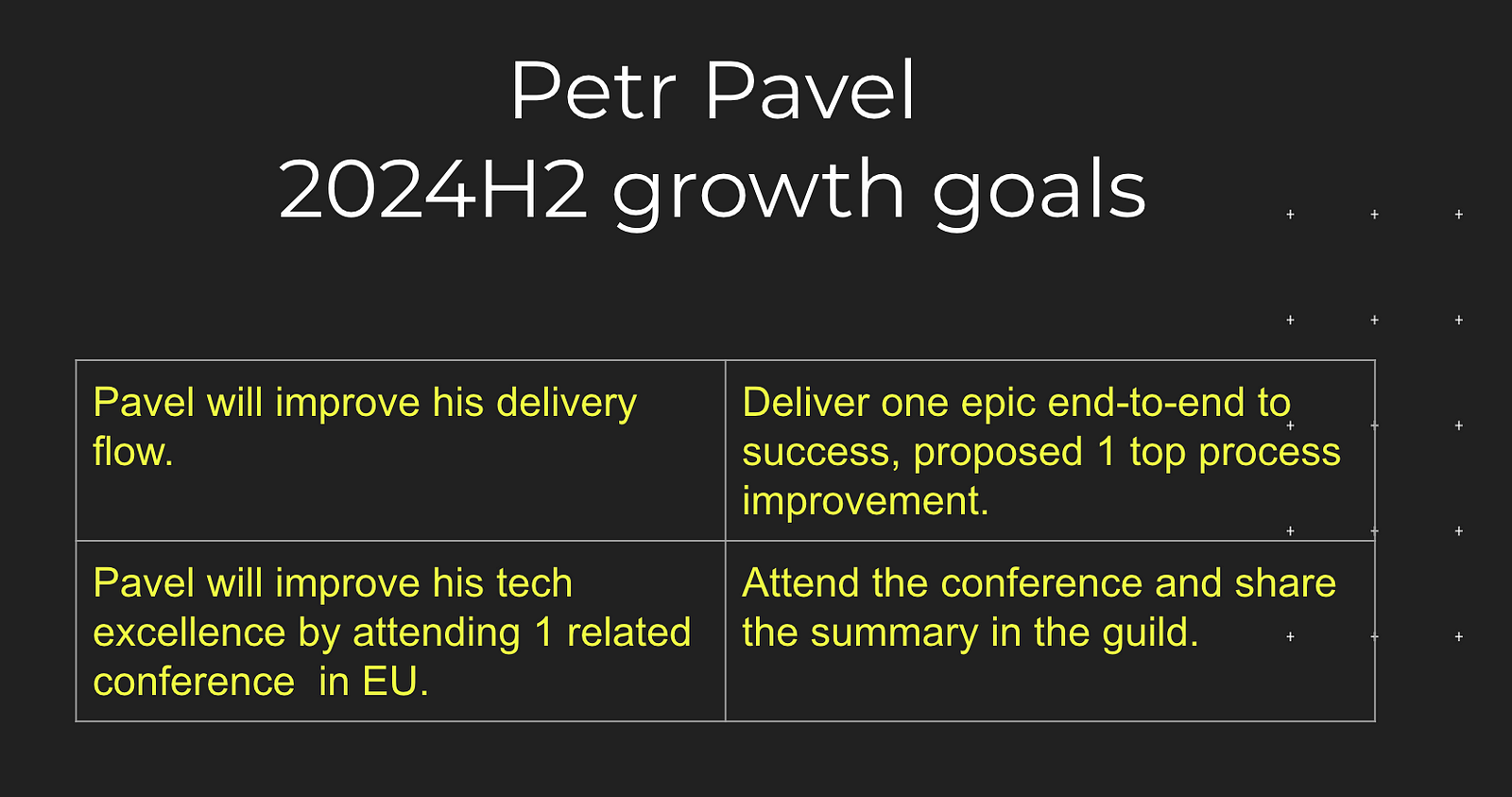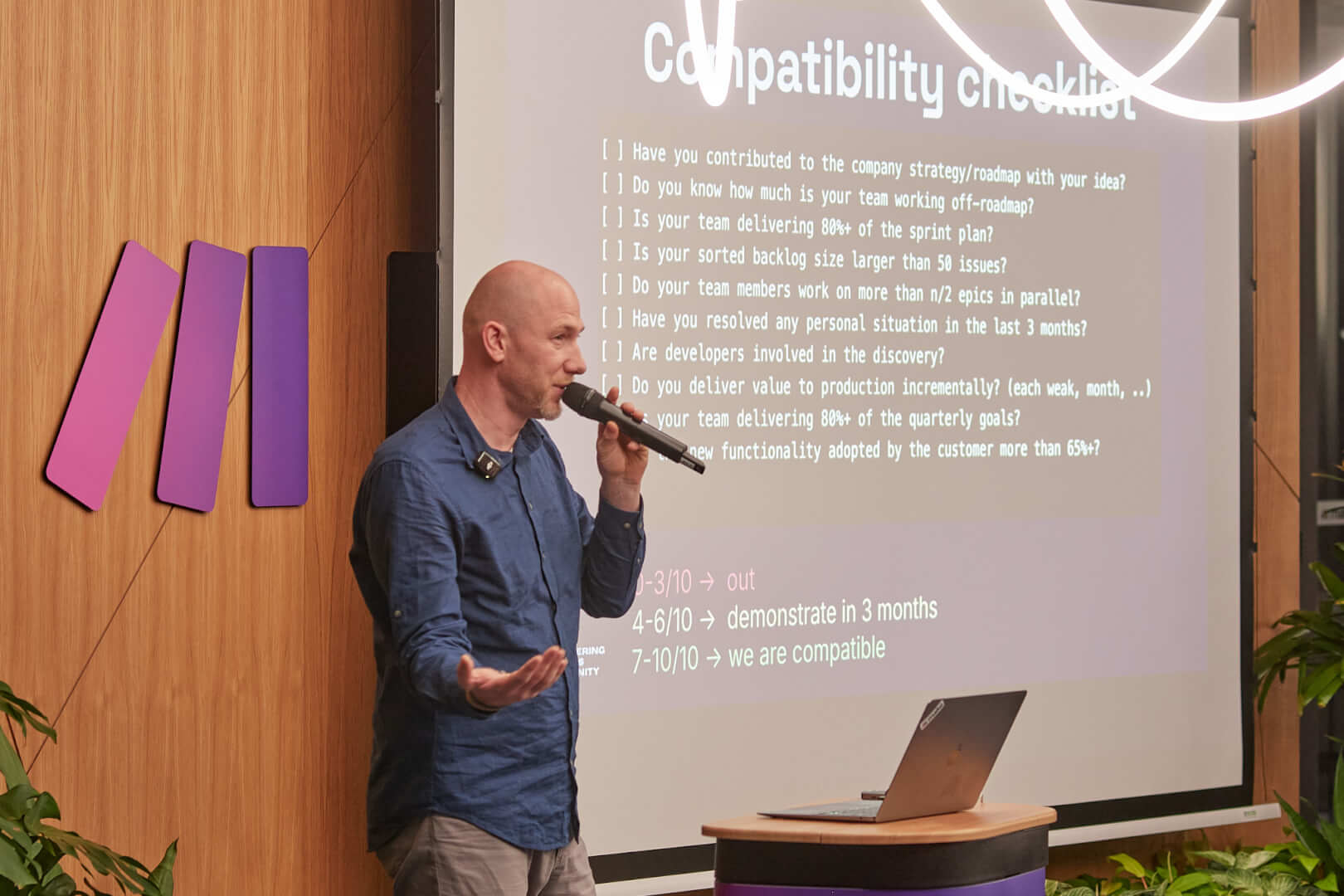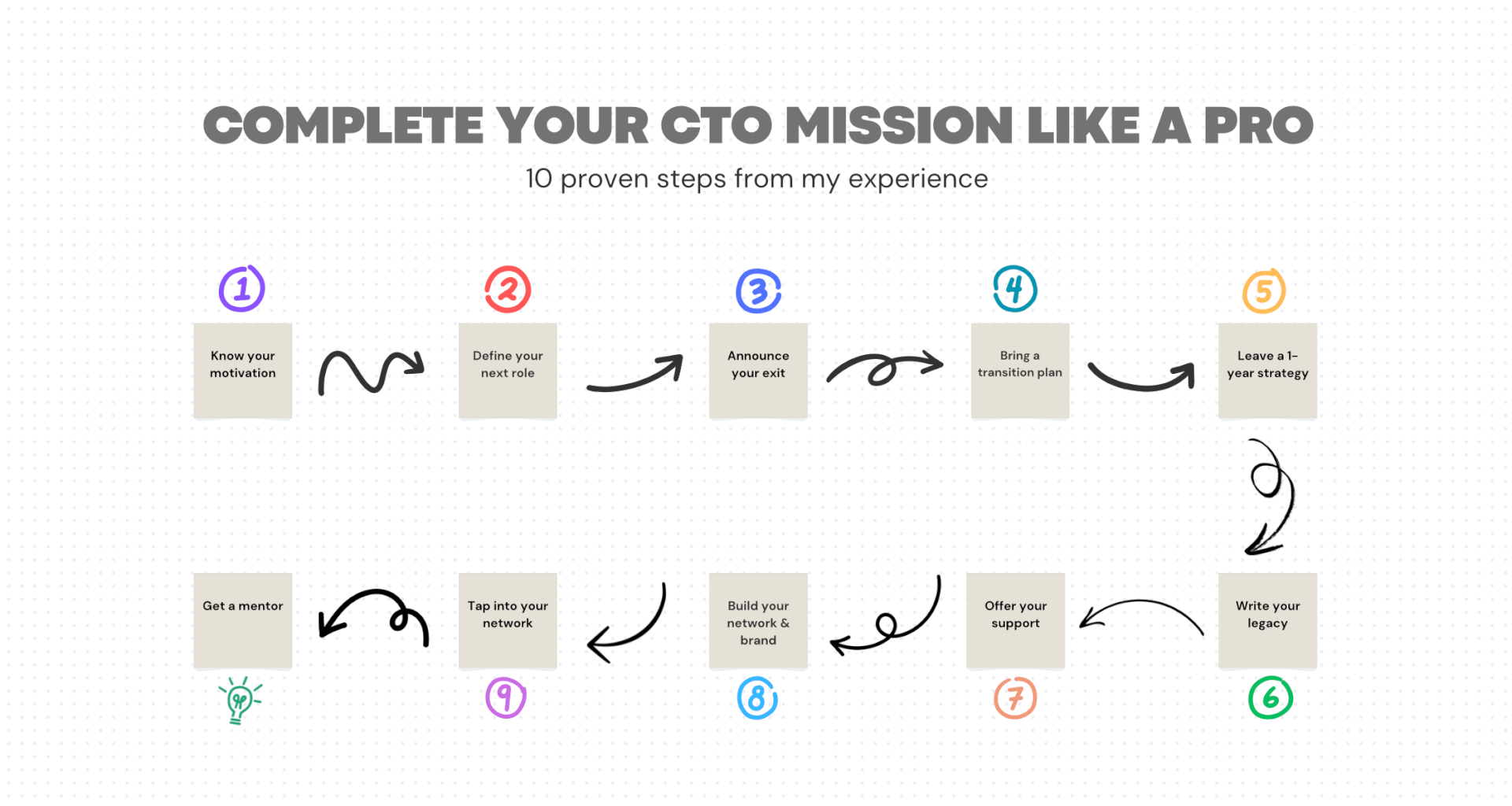Reshape the narrative around performance reviews
Have you ever thought about conducting performance reviews that your team actually loves? You have the power to establish a system that brings value to both you and your team.
A few years ago, we developed a robust and lightweight framework at Mews, scalable from 40 to 200+ developers.
That’s why I’m sharing 11 actionable tips and best practices from my experience that make employee performance reviews a straightforward and rewarding process.
When you have a talent pool of 40+ developers, questions about fairness and transparency naturally come up, like:
“Why does that person have a senior title?”
or
“Why is their salary higher than mine?”
The following case study provides specific examples and valuable lessons for anyone looking to improve their performance review processes.
Tip 1: Skip the monster HR career framework
Don’t wait for HR to develop a massive tank framework.
Take the lead and build your own. That’s how progress happens.
You don’t need a monster career framework system for performance reviews.
Start with a simple, written contract outlining 1–2 objectives that the individual will accomplish in the next six months.
Don’t underestimate the impact this has. Managers usually forget the details of discussions held with their reports half a year ago, including what tasks they should be undertaking and what their goals are.
If you can’t remember the specifics, you have no right to criticize or comment on their goal achievements at the performance review meeting.
TIP: progression.fyi is a collection of public and open-source frameworks you can use right from the start.
Tip 2: Guide your team in goal-setting
Newcomers to performance reviews might struggle to define their goals. Don’t leave them in the dark.
As a manager, it’s your responsibility to help your team find the right goals. Those lacking experience in formulating proposals might feel completely lost.
Provide a list of areas to explore, such as technical skills, leadership, and communication. Offer them the necessary ammunition to construct a meaningful and relevant plan for the next six months for the promotion.
Tip 3: Empower your team to own their goals
Don’t let your team lose ownership of their career growth by dictating their goals. Switch from push to pull and empower them to propose their own.
If it’s you dictating their goals, even if your insights are valid, the entire team loses ownership. They won’t care.
Ask about your team member’s career goals and have them list five things they want to achieve over the next six months.
Give them enough space to formulate their proposals.
Tip 4: Translate goals into outcomes
It’s not enough to have written goals, there should be a clear definition of success based on outcomes.

Measure success in terms of the impact of the goal. If the goal is related to delivery improvement, the outcome is ownership and successful delivery of functionality end-to-end, resulting in customer satisfaction.
If someone is attending a conference, the outcome isn’t their attendance, but sharing their summary, thoughts, and key learnings. It’s about the value they gained and brought back to the team.
Think of outcomes beyond just delivery terms. Instead of saying, “You will deliver XYZ,” prioritize technical and leadership knowledge improvement.
TIP: Thoughtworks is a source of new/early adopted tools, domains, languages, and systems, providing a portfolio of opportunities for your developers to experiment with emerging technologies.
Tip 5: Implement monthly check-ins
Don’t write down goals and forget about them. Waiting six months to ask about your team’s progress sets them up for failure.
As managers, we need to care about our team’s development. Add mini monthly check-ins into your one-to-one meetings to track the progress of the development plan.
Without them, what message are we sending to our team? That despite having a framework in place, we don’t really care. It reduces the process to a superficial system aimed at moving individuals up the hierarchy
Be a good boss and give your team a helping hand. Ask about their progress, offer actionable feedback, and encourage them to work on their goals. Go the extra mile and show that you care about their growth.
Tip 6: Uphold the fairness principle
Demand persistent outcomes, not surface-level achievements that sound promising at first but don’t have a lasting impact.
For the system to work, it must be rooted in fairness. If it isn’t, we fail, and it negatively impacts the culture.
People deserve to be evaluated fairly and receive fair opportunities. If one person says they’ve accomplished something, while another is dedicated to making it work in real life, it introduces an element of unfairness.
Give your team a clear idea of success by prioritizing persistent outcomes. This means not just achieving something on the surface, but documenting the outcome, engaging in knowledge-sharing discussions, automating it into the process, and ensuring improvements are written in stone.
This level of persistence is a reliable benchmark for evaluating fairness. Failing to uphold this standard devalues people’s work and sends the message that their outcomes don’t really matter.
Tip 7: Bring in an expert
You can’t be an expert in every domain, and there’s no shame in that.
If you’re a team lead/engineering manager with a background in backend development, you might oversee a cross-functional team that includes backend, frontend, QA, data, etc. No one expects you to be a genius in each department.
Invite domain experts in the areas you’re unsure of for a brief talk or constructive feedback session. This ensures you have the right information to guide your team, and they will appreciate it.
Tip 8: Praise achievements
Look beyond standard delivery principles and outcomes. Gather evidence of people’s unique work accomplishments and praise them for it.
We often become obsessed with roadmap delivery or leadership within a predefined scope.
No one needs to be praised for delivering the roadmap; that’s expected.
What truly stands out to me are strengths like:
- Facilitating decision-making: We’ve all been there; the third meeting about the same topic. How much do you value the person who helps you make the right decision in the very first one?
- Proposing improvements: How many well-thought-out proposals and requests for change have they contributed?
- Resolving conflicts: Have they taken the initiative to resolve conflicts?
- Mentoring new starters: Do they support and guide new hires, ensuring their satisfaction and success within the team?
Commend your team members for these qualities during their review. Don’t just focus on how they helped you achieve XYZ; recognize the diverse contributions they make to the team’s overall success.
Tip 9: No performance = no review
If someone isn’t performing, leave them out of the review process. No sugarcoating.
This may seem controversial, but you’d be surprised by how well it works. My guiding principle is fairness. If someone isn’t meeting expectations, it’s better to address the issue directly.
“Why do you ask me to review your performance if there was no performance?”
If they question the absence of their review, ask if they think they deserve one or find value in discussing their work performance.
This is a good wake-up call, rather than giving chances for another 3–6 months without real improvement.
Tip 10: Say thank you
Don’t just hand people their scores. Acknowledge their contributions because they deserve it.
Thank them for their loyalty. Express how glad you are that they’re part of the team and that you can rely on them. This is an important conversation and a powerful motivator for the next half-year.
Tip 11: Inform upper management
A framework that overlooks future potential might be functional, but not optimal.
At the end of the review cycle, provide your direct manager with an update on the outcomes. This is also a way for you to demonstrate value or request a raise.

Share insights on: Mutual satisfaction, Progress, Level transitions, Proposed salary adjustments, Underlying contracts, Past performance, New responsibilities, Loyalty, Future potential
One significant flaw in many performance review frameworks is their focus on historical data without taking into account future potential. Reflect on this before making judgments or tough decisions.
Even if you’ve nurtured someone promising for six months, failing to acknowledge their potential could lead them to look for other opportunities.
Compile a list of their strengths and present it to your manager. This is an important step that’s often overlooked.
Bonus tip: Focus on growth, not just levels
Performance evaluations are more than just opportunities for salary or level increases.
While the framework should adjust salaries based on performance, a level raise every half-year is unrealistic. Show your team that it’s designed to facilitate growth in expertise, not just level advancements. That’s the most meaningful outcome.
Lead your next performance review like a boss
This case study is based on insights shared during an Engineering Leaders meetup. Watch the full episode.
Credit to Honza Široký (ex-CTO) for introducing a solid foundation of the career growth framework at Mews, as described here.
About Marian Kamenistak
Marian provides coaching and mentoring to engineering managers and leaders across various levels, helping organisations to succeed in building products.
On top, Marian leads the Engineering Leaders CZ community, organising 9 meetups a year for Engineering Leaders, Managers, Tribe leads, VPEs and CTOs in Central Europe.
Read more about Marian’s mission.
Subscribe and stay tuned for the next post! 💪





